Do you want to embrace yourself with a happier life? Start adopting these 7 Japanese concepts to transform your life and appreciate the simple things, while challenging you to question daily routines.
Mindsets and outlooks that are most beneficial to embrace and live by come from Japanese culture. There is no doubt that their way of life should be practiced as it is home to the oldest living people in the world. So take a look at the 7 Japanese concepts to transform your life.
Seven Japanese Concepts For A Happy Life
1. Ikigai: what makes life worth living

Iki means “life” in Japanese, and gai means “value” or “worth,” therefore the idea of Ikigai is essentially self-explanatory.
Japanese life philosophy believes that everyone has a reason for existing, and they employ Ikigai to discover what they are supposed to do.
So, begin by discovering your purpose in life. Determine the reason you wake up each morning. Choose something that aligns with your strengths, passions, and the needs of the world. This is what will give meaning to your life.
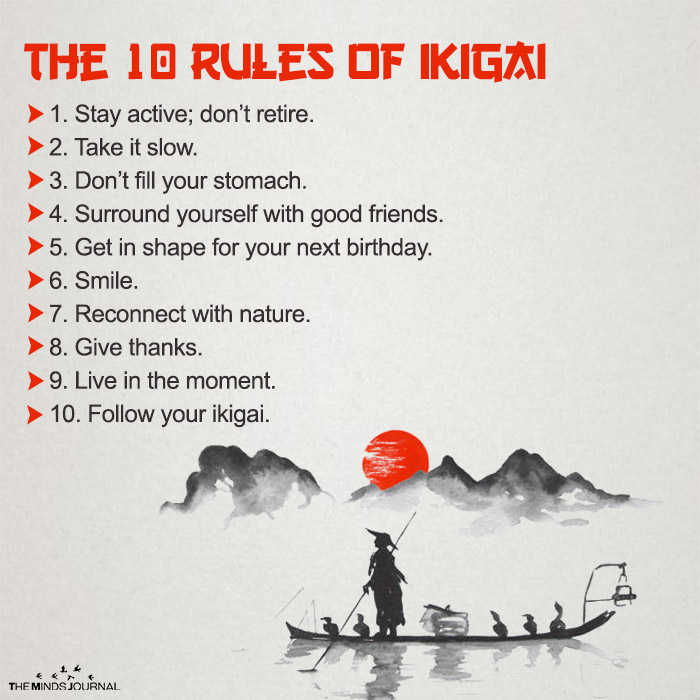
They aim to pick daily actions that add value to their lives, are in line with their interests and the needs of the world, and attribute their longevity and happiness to Ikigai.
Related: Ikigai: The Japanese Secret That’ll Transform Your Outlook On Life
2. Shikata Ga Nai: the art of acceptance and letting go

Similar to ‘C’est La Vie’ in French or ‘Que Sera Sera’, this Japanese concept for being throws hints at the art of letting go of what you cannot help.
We’ve all become accustomed to hearing suggestions and advice from others around us, but Japanese people make an effort to incorporate it into their daily lives.
You need to understand that there are some things that are just out of your control, and that’s okay. Start by focusing on what you can change and what you cannot.
If you can’t change it, then let it go…
3. Wabi Sabi: making peace with your imperfections

One of the age-old Japanese concepts for self improvement advocates embracing your flaws and learning to appreciate them. One of the demands of being flawless is alleviated by this belief.
Instead of wishing for perfection or more, it suggests accepting who you are and how your life is right now.
Flaws make us beautiful. So, instead of striving for flawlessness, find happiness in being imperfect, because that is what makes you unique.
4. Gaman: the art of endurance
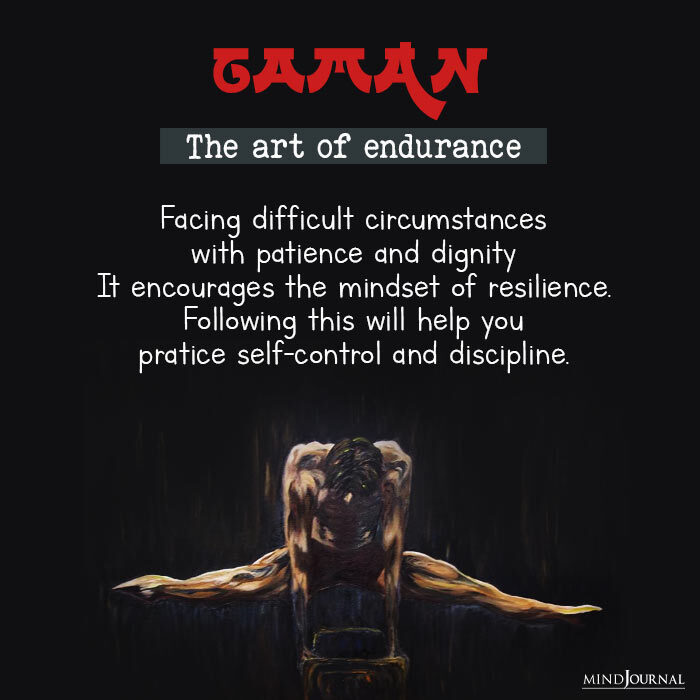
Gaman refers to bearing harshness and the intolerable with patience and dignity, which is quite comparable to having a high threshold for tolerance and patience.
It encourages the mindset of being composed under pressure and remaining resilient even under the most difficult circumstances.
Follow this concept by showing emotional maturity and self-control, even when you face challenges. The path of resilience and understanding is difficult, but worth it.
Related: 21 Laws Of Dokkodo: The Japanese Way Of Walking Alone
5. Oubaitori: not comparing yourself
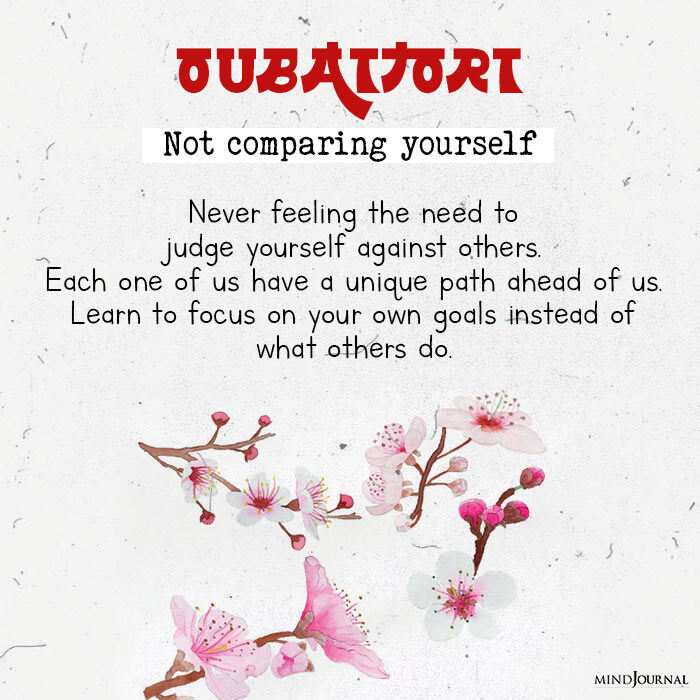
One of the profound Japanese concepts of life, this phrase refers to the idea of never feeling the need to judge yourself against others.
It is derived from the kanji for the four spring-blooming trees, cherry, plum, apricot, and peach, and is inspired by trees. It means that just as each flower opens out in its own time, each person has a unique path ahead of them.
So, instead of comparing yourself to others, focus on your own goals and development.
6. Kaizen: continuous improvement
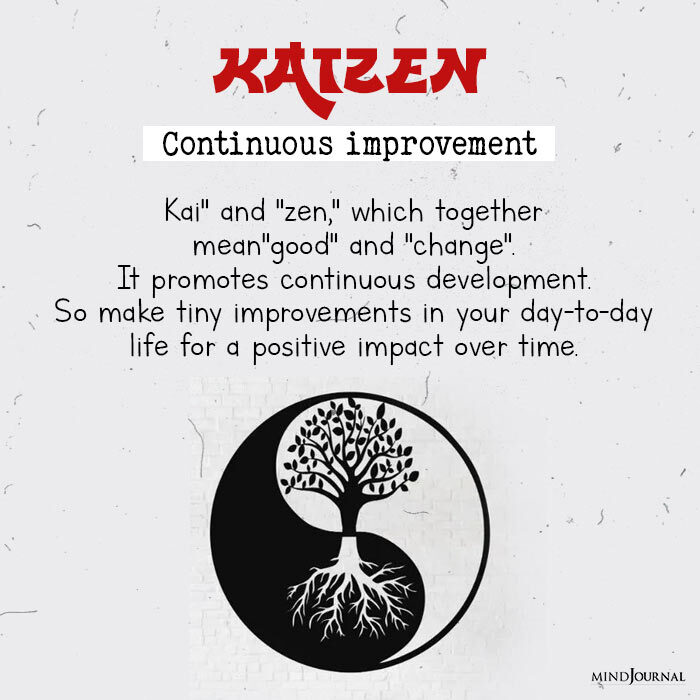
It is a Japanese expression that indicates progress for the better or constant change. It is constructed of the two terms “kai” and “zen,” which together indicate “good” and “change,” and is frequently utilized as a business concept.

It promotes continuous development. So strive to make improvements in your day-to-day life. Even minor changes can have significant influence on your life over time.
So, learn to organize, innovate and repeat!
Related: Kaizen: A Japanese Technique For Overcoming Laziness
7. Shu Ha Ri: learn, detach, and, transcend
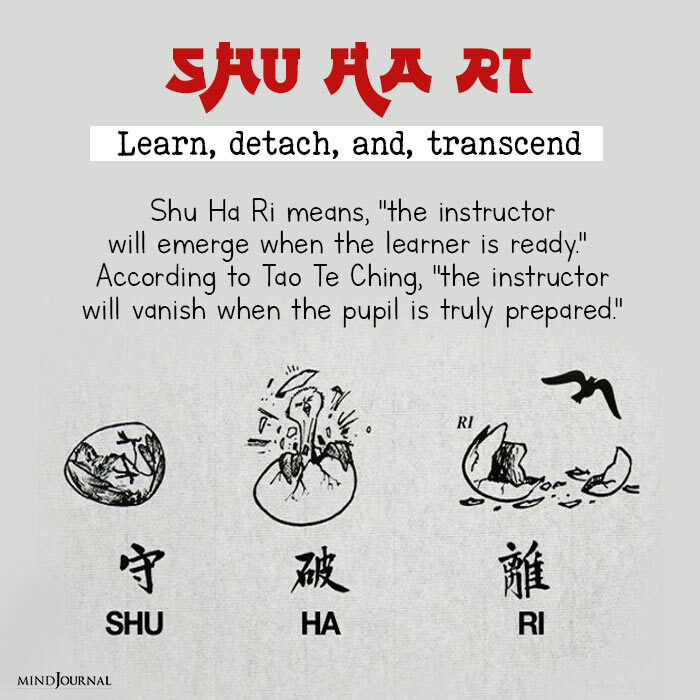
The meaning of Shu Ha Rai is “the instructor will emerge when the learner is ready.” According to the Tao Te Ching, the instructor will vanish when the pupil is truly prepared.
The phases of learning for a student are referred to as Shu Ha Ri in Japanese philosophy of life.
Shu: We repeat acts and forms and discipline ourselves throughout the first stage. This occurs when a learner rigorously adheres to the teachings of a single instructor.
Ha: When the pupil ventures forth and incorporates knowledge from several instructors and experiments it.
Ri: The point at which the learner can learn on his own via practice and experience rather than through a mentor.
So in life, follow the rules, break the rules, and finally be the rule!
Related: Sohwakhaeng: The Korean Secret To Happiness
So which Japanese concept for being is your favorite of these? Share your thoughts in the comments below!

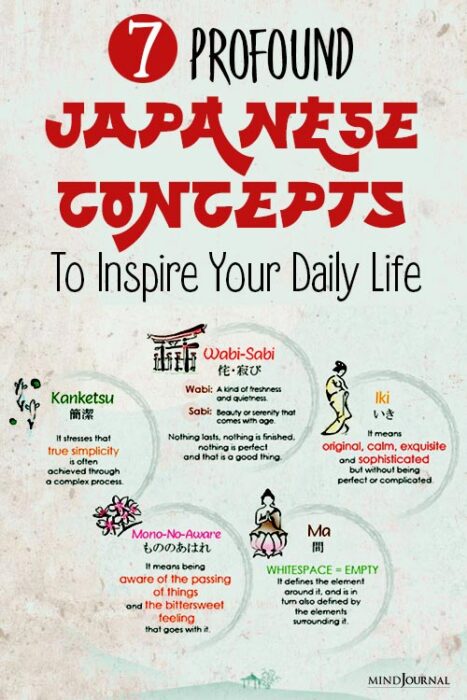
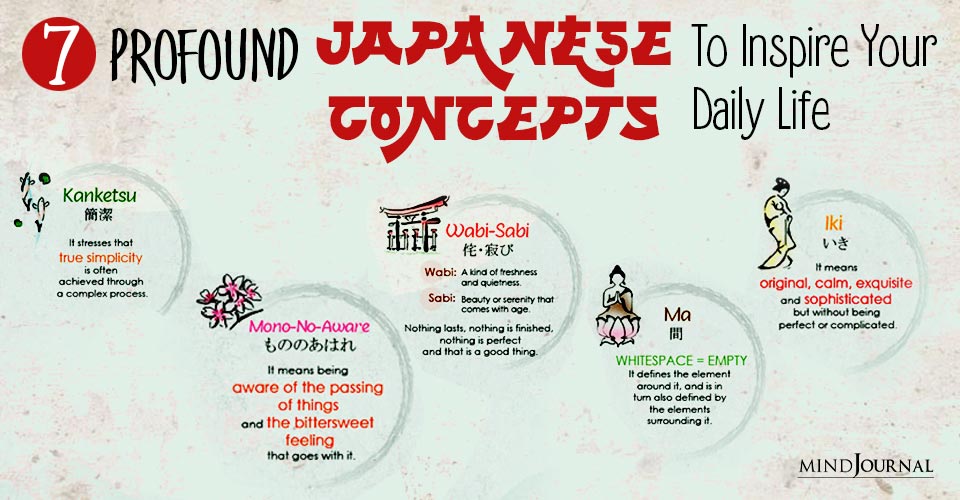







Leave a Reply
You must be logged in to post a comment.